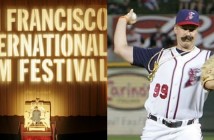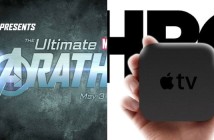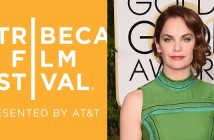Editor’s Note: Projecting features a selection of great film and television focused writing from around the internet.
Jose Gallegos breaks down the appeal of Four-Female Sitcoms to queer audiences, for /bent:
Homosociality is at the core of each show, and proves to be one of the most appealing traits to queer audiences. These homosocial bonds can be both affectionate and antagonistic, as displayed by Sophia’s constant ridiculing of Dorothy in “The Golden Girls” and Julia’s derision of Suzanne’s materialistic lifestyle in “Designing Women.” Though the women frequently fight and bicker, they maintain constant homosocial bonds that challenge patriarchal society and gendered/societal expectations, mirroring the constant struggle queer audiences endure in their real lives.
Dana Gould gives insight into the close relationship many comedians have with depression and lovingly honors Robin Williams, for Rolling Stone:
Laughing and screaming are physiological cousins; both used by the body to release anxiety and tension. In terms of comedians, when the chicken-and-egg question of, “which came first, the sad or the funny” is raised, I can, with authority, say that the egg of acute anxiety begat the rubber chicken of inspired hilarity. In other words, I literally laughed to keep from crying. As do so many.
Rose Eveleth delves into George Lucas’ refusal to release the original cut of Star Wars and the fans that push back, for The Atlantic:
Harmy—a 25-year-old from the Czech Republic—never saw the original Star Wars in theaters. Instead, he had a VHS tape that he watched as a kid. And when he first saw the special editions, he actually liked them. But as his Star Wars fandom grew—he did his undergraduate thesis on the cultural impact of the original movies—so did his desire to see the film in its earliest state. Using skills he picked up in college, he created his first despecialized version four years ago. Now, he’s on version 2.5, and between new copies of the movie being made available, and the techniques he’s learned along the way, he’s confident this version is the best one yet. “I’m pretty proud of these latest ones,” he told me.
A.O. Scott observes the hectic nature of fall film festival season and the childish quibbling that it has come to, for The NY Times:
Next Thursday, attention will shift — and the residents of Movieland will stampede — to the Toronto International Film Festival. And then, at the end of September, to the West Side of Manhattan, where David Fincher’s “Gone Girl” will open the New York Film Festival. (“Birdman” will close it.) So far so good. By October, Movieland will be in a state of thorough, giddy confusion. But this year the festival parade — usually an orderly if hectic sequence of screenings, parties and mini-junkets instantly recapped on Twitter, in blogs and on websites — has been disrupted by a rare outbreak of interfestival skirmishing.




